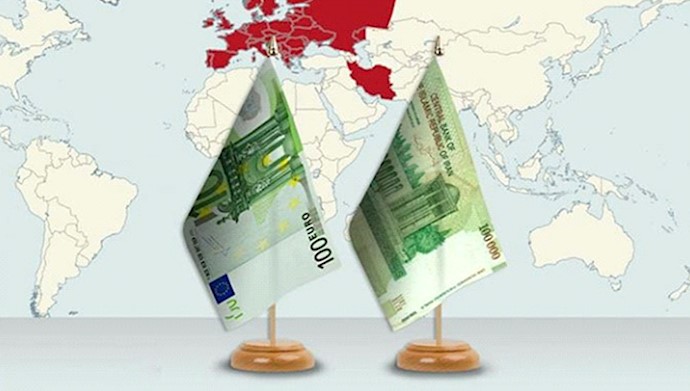Analysis by PMOI/MEK
Feb. 14, 2019 – With Europe’s halfhearted financial mechanism, named INSTEX—short for “Instrument in Support of Trade Exchanges—coupled with Iran’s conformance to the de facto world’s body standards on money laundering, its ballistic missile program and regional malevolent meddling, the Iranian regime stands at a strategic crossroads with inevitable dead-ends.
While fresh meat prices are already approaching the one-tenth region of the monthly minimum wage, Iran’s economy is on the slippery slope of a downward spiral towards hyperinflation, and popular discontent levels are rising.
To benefit from Europe’s mechanism, which doesn’t amount to more than a food-for-oil program, the Iranian regime needs to abandon its terrorist nature and curb its ballistic missile program, pass the necessary bills into law to conform to FATF’s anti-money-laundering standards, and leave its terrorist proxies throughout the Middle East.
On the other hand, the regime can also choose the path of confrontation with the international community and lose the little economic and political support it has in Europe, or China and Russia.
The Iranian regime likes to extend this game and postpone the decision as long as possible. But the FATF ultimatum is a few days away and Warsaw’s summit on security and peace in the Middle East will shed a fundamentally different light on the playfield.
While the FATF standard’s on financial transparency, combatting the financing of terrorism, and anti-money-laundering may seem very reasonable to the civilized world, to the ruling elite in Tehran, it can pose an existential threat.
The Islamic Republic of Iran is founded on the idea of exporting its so-called revolution—read death and destruction—to all the Islamic world. The concept of a Supreme Leader, currently Ali Khamenei, is called in Persian—although the term has Arabic roots— Velayat-e-Faqih, which literally means Guardianship of the Islamic Jurist. This very idea puts religion before nation and cannot live without expansion. Think medieval catholic church and the crusades.
That’s why many Iranian officials are concerned about EU’s INSTEX proposal.
Mohammad-Javad Abtahi, an Iranian MP close to Khamenei’s faction, says: “INSTEX is a window dressing that leads to a ruined place.”
“While Europeans present INSTEX with no acceptable solution to Iran, they have a new demand from our country. This European act is in fact the prelude to the second JCPOA. INSTEX is more like a candy offered to a child to draw his attention from an important matter,” he added.
Mohammadreza Pour-Ebrahimi, chairman of the economic commission in the Majlis (parliament) attacked the so-called moderate faction and said: “Some have set their heart on the Europeans.”
On the other hand, officials and pundits close to regime president Hassan Rouhani call for concessions to Europe out of fear of a popular uprising due to widespread economic misery.
Davoud Hermidas-Bavand, a pundit close to Rouhani’s faction says in an interview with the Iran Diplomacy website: “It seems that next year Iran will be enclosed with serious economic upheavals to provide for basic needs for the country. We have to accept that regardless of some chants and an ideologic look, we have to start a successful diplomacy based on mutual cooperation and respect with all the countries in the world.”
Amid the confusion and indecisiveness among the ruling factions, Ali Bigdeli, close to Rouhani’s faction, suggests: “Today, we need a serious and active approach to keep our exchange with the green continent of EU. You see, right now it isn’t about achievements. The international situation for Iran has reached a turning point. We have to keep the European Union on our side at any cost. If we, in light of our wrong behavior, send the EU, especially Germany, France, and the UK, to this triangle [of which, according to Bigdeli, two edges are United States and Arab countries], the conditions for Iran’s presence in the international community will become very difficult. In such a way that our allies like China and Russia will turn their back on us.”
Considering the Warsaw summit, the looming prospects for the Islamic Republic look even more damning.
Signatories to the JCPOA, like Germany and the UK, who also proposed INSTEX, will attend the summit where the ruling theocracy in Iran will be more isolated to say the least.
And the Iranian regime’s hopes to drive a wedge between the EU and U.S. seems more remote as ever before.





